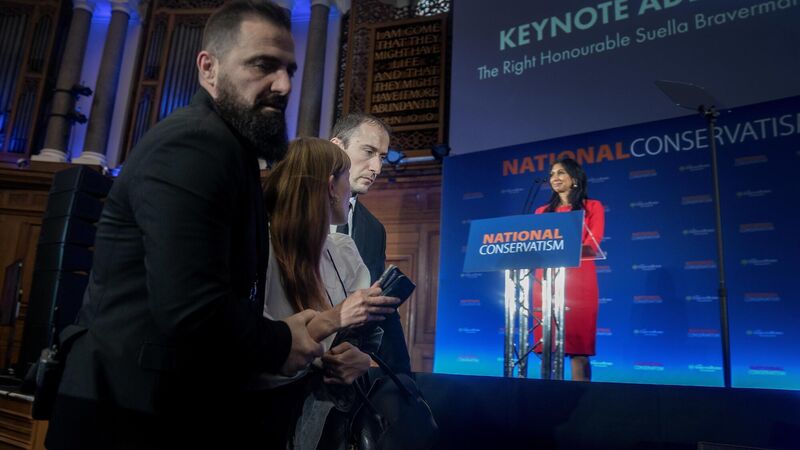Séamas O'Reilly: Authoritarian nationalism has been a long-running political project

A protestor is removed from the audience during Home Secretary Suella Braverman's speech during the National Conservatism Conference at the Emmanuel Centre, central London. Picture date: Monday May 15, 2023.
As we speak, a few miles up the road from where I live, the UK’s National Conservatism conference (NatCon23) has come to an end.
It was a strange, sad, and alarming affair, in which a grisly clown car of right-wing heels tumbled on stage to advocate for British nationalism.









